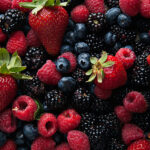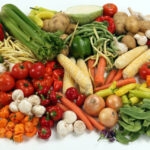Food for Thought
We are what we drink
Today, the planet’s 1.6 billion overweight people by far outnumbers the 700 million who are under nourished. This would have seemed ludicrous just 50 years ago, when hunger was the world’s most pressing nutritional problem says Prof Barry Popkin. In The World Is Fat (Avery) he identifies four trends that have emerged over the past 60 years that have significantly changed the way we eat: snacking on energy-dense foods between meals, weekend eating, eating supersized portions and eating away from home. In the following extract, he explains why drinking with abandon an ever-increasing range of high calorie (kilojoule) sodas, juices, sweetened teas, lattes and energy drinks aggressively marketed by food and beverage companies is clashing with millions of years of human evolution.
![[BARRY POPKIN]](https://glycemicindex.com/blog/2009/jan2009/popkin125.jpg)
Prof Barry Popkin
‘Our species, Homo sapiens, appeared between 200,000 and 100,000 years ago. But it’s likely that until wine and beer were invented – about 11,000 years ago – we didn’t drink anything other than water or breast milk. Our hunter-gatherer ancestors drank breast milk for the first few years of their lives, and after that only water – the basis for life for all mammals.
But during the last century we’ve seen huge changes in the beverages consumed throughout the world – changes our biology isn’t prepared for. Imagine what would have happened to a hunter-gatherer if his or her hunger were satiated by drinking water. He or she wouldn’t feel the need to forage for food, and wouldn’t have stored essential body fat for times of famine. It’s obvious that if water consumption alleviated our hunger pangs, we, as a species, might not have survived. Another way of looking at this is that those who survived didn’t cut their food intake after drinking. And for us today the implications are clear – we drink a lot of calories and we don’t cut our food intake as a result. Recent studies confirm this. We can have a 16 oz (450 ml) bottle of Coke or three beers before dinner – and yet not eat any less because of it.
The relatively recent addition of caloric beverages to our diet as you can see from the illustration provides a sense of the role beverages play in the obesity epidemic. Compared to the millions of years during which we evolved into Homo sapiens, the span of time in which we have been consuming caloric beverages has been very short. Our genes take a long time to respond to such changes – we are living in a rapidly changing world but with genes adapted to an earlier period.’
– Extract from The World is Fat published with permission of Penguin Group (USA) Inc.



![[BEVERAGE TIMELINE]](https://glycemicindex.com/blog/2009/jan2009/timeline250.jpg)
![[WORLD IS FAT]](https://glycemicindex.com/blog/2009/jan2009/worldisfat150.jpg)




